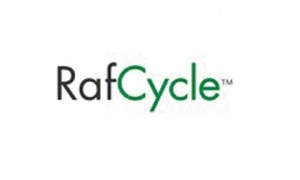UPM extends reach of RafCycle waste management concept
UPM Raflatac has signed a cooperation agreement with the French subsidiary of Aliplast for release liner recovery.
Aliplast is an Italian company specializing in the collection and treatment of recovered plastic films.
This partnership expands Aliplast’s recycling services to polypropylene (PP) and paper-based release liners through UPM Raflatac’s RafCycle waste management concept. Aliplast now collects, sorts and distributes all types of release liner to different recycling processes, avoiding landfill or incineration.
Large collection bags are installed by Aliplast for use by self-adhesive label end users like drinks bottlers and companies from the food, cosmetics and pharmaceutical industries. Aliplast collects the bags regularly and directs them to its two sorting centres near Strasbourg and Lyon. After sorting, the waste is transported to its final place of re-use.
PP, including UPM Raflatac’s ProLiner PP30, is re-used as a raw material in the manufacture of wood-plastic composite products at the UPM ProFi factory in Bruchsal, Germany. Other wrapping films are recycled into various packaging products by Aliplast Italy.
Aliplast also collects paper-based release liners for fiber re-use. The recovered paper liners are re-pulped and de-siliconized, and the pulp is used for papermaking at UPM’s paper mills.
Through the partnership with Aliplast, UPM Raflatac said it has extended the reach of its RafCycle concept to even more label end users.
The RafCycle concept makes use of labelstock by-products from all stages of the labelstock lifecycle: process waste from coating and slitting operations, matrix and start-up waste from printing and die-cutting, and liner waste from label dispensing at the end of the cycle.
The recycled self-adhesive label waste is given new life as one of three end-products: UPM ProFi composite material, energy or paper.

































